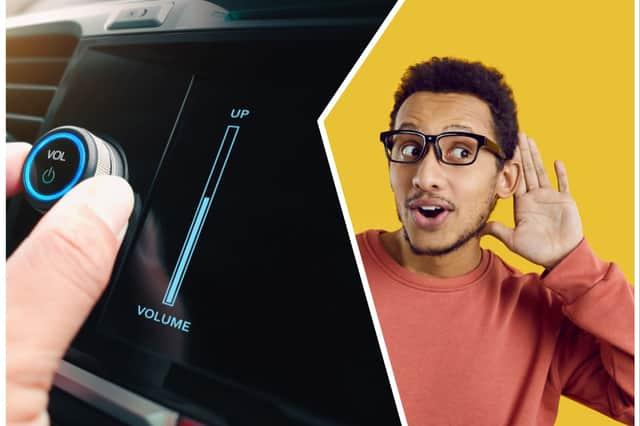TikTok users turn down music to see better - optician explains if there's a link between seeing and hearing


Have you ever removed your glasses so you can “hear better” or turned your music down to “see better”? If this sounds familiar then you're not the only one. TikTok users are convinced there’s a connection between seeing and hearing.
Content creators have been posting videos discussing why they are convinced that adjusting their visual surroundings influences how well they hear, and vice versa. Examples of these videos include one which is captioned 'the Uber driver is taking an unfamiliar route so you remove your Airpods to see well'. Another is simply captioned 'me trying to hear without my glasses' and shows a user comically looking confused by everything people say to them off camera, until they put their eyewear on and then their sound is crystal clear.
Advertisement
Hide AdAdvertisement
Hide AdThere are hundreds of comments in agreement on the app too. One person said: "“Same energy as turning the music down in the car so you can see the street signs better.” Another enthusiastically added: “YESSSS!! Everyone tells me that I’m crazy for saying I can’t hear without my glasses".
So, what is the intricate relationship between our eyes and ears, and is it really possible that adjusting the sound you are exposed to can help you see better or vice versa? An optician gives the answer below.
Why can't you hear properly without your glasses on?
"While not 100% understood, the well-established connection between our eyes and ears is something that has been observed since antiquity," according to Malcolm Maciver, an optometrist at Leightons Opticians.
In more recent times, a 2015 study published in Scientific Reports investigated the effect of gaze direction on hearing by assessing participants in a dark room, either looking directly at a speaker or looking away. It demonstrated that the brain uses more effort to process sound when individuals avert their gaze from the source.
Advertisement
Hide AdAdvertisement
Hide AdOn the other hand, participants exhibited slower reaction times and increased brain activity when their gaze was averted, suggesting a heightened cognitive effort in processing sound when not able to see the direct source.
Maciver says this study provides compelling evidence that our eyes and ears are not merely standalone sensory organs but are intricately linked. "The brain assumes that what we see should match what we hear, and if there's any difference, it has to work harder to make sense of it," he adds.
This would explain why so many people find it difficult to hear when they’re not wearing glasses, whether they’re reading the lips of a person talking to them or unable to clearly see where the sound is coming from.
Why might you hear better without your glasses on?
The relationship between sound and sight is complex, and so some people may actually hear better if they are not wearing their glasses.
Advertisement
Hide AdAdvertisement
Hide AdMalcolm says "the notion of taking off your glasses to hear better may also have some basis". Studies suggest the act of removing glasses alone may not dramatically enhance auditory perception, but rather the overall collaboration of our senses that plays a crucial role in our perception.
"It's more about the overall coordination of sensory input," explains Maciver. "In other words, it's not just about one specific action, like removing glasses, but rather that removing your glasses allows the brain to focus on just one of the senses, in this case, hearing."
Can the reduction of noise improve vision?
On the claim that lowering auditory stimuli improves vision, Maciver advises: "In practical terms, reducing background noise and creating an environment conducive to both clear vision and effective hearing involves minimising distractions. This not only includes background noise but also how the sights and sounds match up both in terms of where they occur and when they happen."
For example, turning the music down when driving can contribute to better focus and visual attention. Whilst the reduction in noise may not directly translate to improved visual sharpness, our vision can benefit from an environment with fewer distractions.
Advertisement
Hide AdAdvertisement
Hide AdMaciver concludes: "Ultimately, both vision and hearing benefit from an environment with fewer distractions. Whilst further research is required, it’s fair to say that our senses do collaborate, and there is clearly a symbiotic relationship between eyesight and hearing.”
Comment Guidelines
National World encourages reader discussion on our stories. User feedback, insights and back-and-forth exchanges add a rich layer of context to reporting. Please review our Community Guidelines before commenting.
